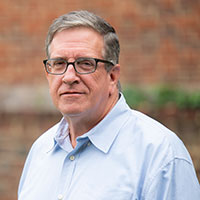Telecom policy veteran Gigi Sohn – who came out on the short end of a bruising nomination battle to become a commissioner at the Federal Communications Commission (FCC) earlier this year – joined the American Association for Public Broadband (AAPB) last month as the group’s executive director, according to her LinkedIn page.
“AAPB is an organization dedicated to ensuring that communities have the freedom to choose what broadband network best serves their residents,” Sohn said.
“My work at AAPB is in addition to my ongoing work at the Benton Institute for Broadband & Society,” she added. Sohn has served as a senior fellow and public advocate at Benton since 2017, and also continues as a distinguished fellow at Georgetown Law Institute for Technology Law and Policy.
Sohn in March asked President Biden to withdraw her nomination as an FCC commissioner after the nomination stalled in the Senate Commerce, Science, and Transportation Committee. Senate objections to her nomination included criticisms over policy issues, and her previous work leading the left-leaning Public Knowledge think tank.
She was initially nominated by the White House for an FCC commissioner spot in 2021. Senate Commerce approved that nomination, but the full Senate failed to vote on it. President Biden refreshed the nomination in January of this year.
For as long as her nomination remained stalled, the net result for the Biden administration and the FCC was a 2-2 split among Republican and Democratic commissioners that deprived Democrats of the 3-2 majority normally enjoyed by the party that controls the White House, and less leeway for FCC Chairwoman Jessica Rosenworcel to pursue her agenda.
“Unfortunately, the American people are the real losers here,” Sohn said when she asked that her nomination be withdrawn. “The FCC deadlock, now over two years long, will remain so for a long time. As someone who has advocated for my entire career for affordable, accessible broadband for every American, it is ironic that the 2-2 FCC will remain sidelined at the most consequential opportunity for broadband in our lifetimes.”

